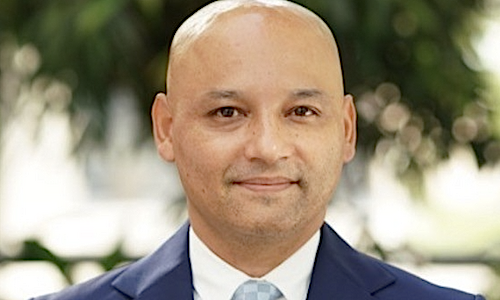Shail Bisht: «Private Banking is Being Reshaped Right Now»
Neobanks and crypto platforms are intensifying competition among financial institutions. But they are also driving innovation. Shail Bisht, regional director at Expotrade Global, the organizer of the Middle East Banking Innovation Summit, explains how this is set to transform the industry.
Written by Gérard Al-Fil, Dubai
Shail Bisht, the next Middle East Banking Innovation Summit (MEBIS) will take place from September 17 to 18. What can we expect?
At MEBIS 2025, attendees can expect a dynamic agenda curated around the most pressing priorities and transformative opportunities in banking and financial services. We’ve assembled a powerful lineup of speakers, including C-level executives from leading banks covering the whole of the MENA region, regulators, fintech pioneers, and technology innovators. The panels will address real-world case studies on digital transformation, AI in financial services, open finance, and next-gen customer experience. This year, we’re placing a stronger emphasis on operational innovation, on how banks are becoming faster, leaner, and smarter through emerging technologies like AI.
«It may appear paradoxical at first glance, but the region’s banking sector has shown remarkable resilience.»
It seems that despite geopolitical challenges in the region, the financial services sector performs surprisingly well, not only in the GCC but also in the Near East, like in Jordan. Isn't this a paradox?
It may appear paradoxical at first glance, but the region’s banking sector has shown remarkable resilience, underpinned by strong regulatory frameworks, a young and digital-savvy population, and a proactive approach to innovation. In countries like Jordan, banks have embraced digitization to improve financial inclusion and customer access, while the GCC continues to invest heavily in fintech infrastructure. The momentum isn’t accidental; it’s strategic and is often supported at the highest levels of government.
Conventional banks are more and more switching to digital service platforms, while neobanks and cryptocurrency apps are on the rise – a challenge or an opportunity?
It’s both a challenge and an opportunity. Traditional banks are now rethinking legacy systems and adopting platform-based approaches to stay relevant. The rise of neobanks and crypto platforms has increased competitive pressure but also encouraged collaboration and new models of innovation. The smarter banks view fintech not as a threat but as a partner in building a more agile, customer-centric future.
«In five years, retail banking will be highly digital and mobile-first, driven by AI and predictive analytics.»
Where do you see banking – retail, private and corporate – in five years?
In five years, we’ll witness a more personalized, real-time, and intelligent banking experience across all segments. Retail banking will be highly digital and mobile-first, driven by AI and predictive analytics. Private banking will be reshaped by digital wealth tools and hybrid advisory models. And corporate banking will see automation in trade finance, blockchain-based settlements, and closer integration with enterprise systems. Banks investing now in data, agility, and ecosystem partnerships will lead the way.
MEBIS became a pillar in the banking conference scene. Were there any ideas or products born out of a discussion at previous editions?
Absolutely. MEBIS has always been a platform that sparks collaboration. Over the years, we’ve seen everything from strategic fintech-bank partnerships initiated at our networking sessions to early concepts of digital onboarding, conversational banking, and AI-driven risk tools being validated and launched after discussions on our stage. We don’t just talk innovation; we help catalyze it.
«The regulatory agility willingness to experiment give countries like UAE or Saudi Arabia and a competitive edge.»
How did MEBIS evolve over the years?
MEBIS began as a focused banking technology forum but has evolved into a strategic summit covering the full spectrum of financial services innovation. As the industry has transformed, so have we, expanding our themes to include sustainability, open banking, AI, regulation, and customer experience. What hasn’t changed is our commitment to creating an exclusive, senior-level platform that drives real insight and high-value networking.
You are from Australia, but you have been working in Dubai for many years. Do the Gulf states have to hide behind developed nations like your country in relation to digital banking?
Not at all. In fact, I’d argue the Gulf states are leapfrogging many so-called developed markets in digital banking. Countries like the UAE and Saudi Arabia are making bold moves in adopting digital banking frameworks, open finance, and instant payment systems. Their regulatory agility and willingness to experiment give them a competitive edge. The region isn’t playing catch-up; it’s setting new benchmarks.
What is your message to our finews readers in Europe, the Middle East and East Asia?
We’re in a defining era for global finance, where innovation, inclusion, and intelligence are the new currency of leadership. Whether you're in Zurich, Dubai or Singapore, the message is clear: embrace transformation, stay agile, and collaborate across borders. MEBIS stands as a bridge connecting banking leaders across regions, and we invite you to be part of this ongoing conversation shaping the future of finance.
Shail Bisht is regional director at Expotrade Global, the initiator and organizer of the annual Middle East Banking Innovation Summit (MEBIS). This year’s edition will take place from September 17 to 18 at the Jumeirah Emirates Towers in Dubai.



























